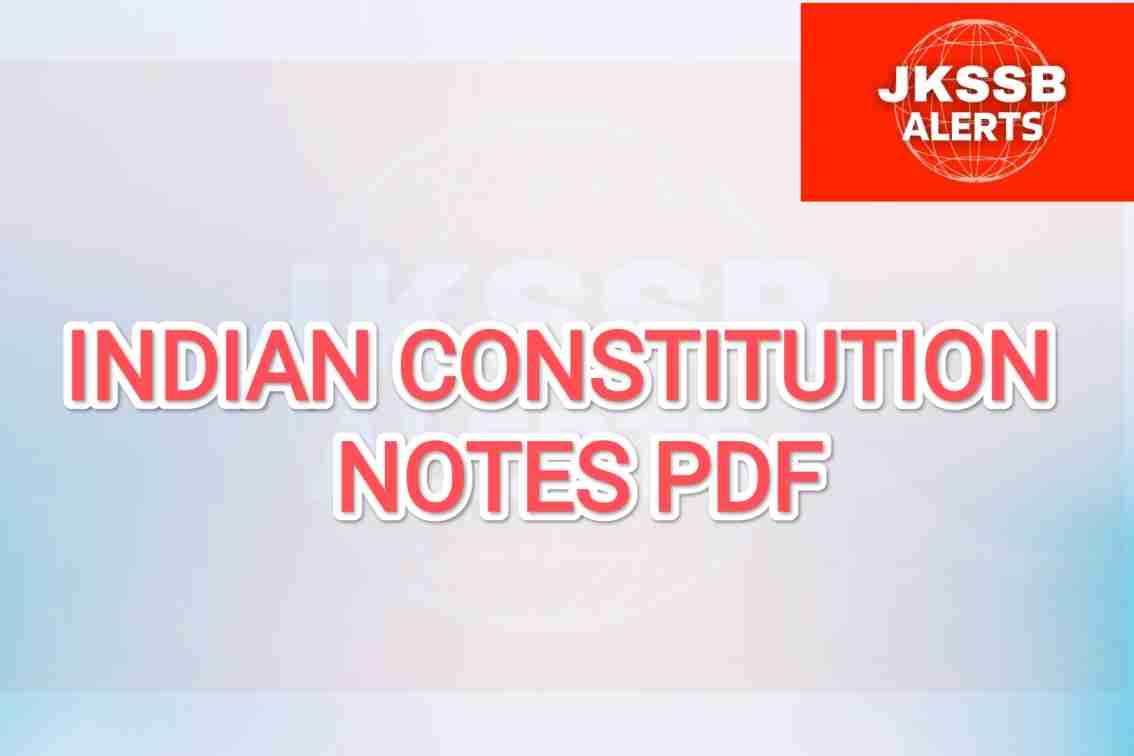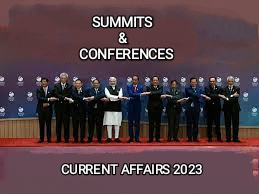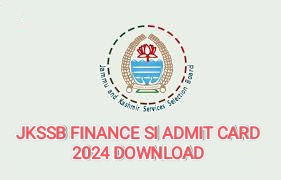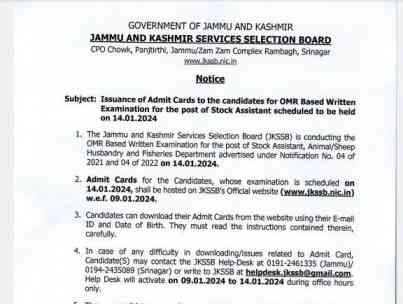Constitution of India, basic features, fundamental rights, duties etc.
The Constitution of India lays down the framework on which Indian polity is run. The Constitution declares India to be a sovereign, socialist, democratic, republic, assuring its citizens of justice, equality and liberty. It is the longest written Constitution of any independent nation in the world, containing 395, articles and 12 schedules, as well as numerous amendments, for a total of 117369 words in the English languages version. Besides the English version , there is an official Hindi translation.
The Constitution lays down the basic structure of government under which the people chose themselves to be governed. It establishes the main organs of government - the executive the legislature and the judiciary. The Constitution not only defines the powers of each organ, but also demonstrates their responsibilities. It regulates the relationship between the different organs and between the government and the people.
The Constitution is superior to all other laws of the country. Every law enacted by the government has to be in conformity with the Constitution. The Constitution lays down the national goals of India - Democracy, Socialism and National Integration. It also spells out the Fundamentals Rights, Directive Principles and Duties of Citizens.
The present constitution was framed by the Constituent Assembly of India setup under Cabinet Mission Plan of 16 May, 1946. The Constituent Assembly consisted of 389 members, of which 292 were elected by the elected members of the Provincial Legislative Assemblies while 93 members were nominated by the Princely States. There was also a representative each from the four chief Commissioners Provinces.
Each Province and each Indian State or group of States were alloted the total number of seats proportional to their respective population roughly in the ratio of one to a million. The first meeting of the Constituent Assembly took place on 9 December, 1946 with Dr. Sachidanand Sinha as its interim President. Dr. Rajendra Prasad was elected as its President on 11 December, 1946. The Assembly had 13 committees for framing the Constitution.
The all-important Drafting Committee, which bore the responsibility of drafting the Constitutional document during the recess of the Constituent Assembly, from July 1947 to September 1948, was formed on 29 August, 1947. Its Chairman was Dr. BR. Ambedkar.
The Constitution was finally passed and accepted on 26 November, 1949. The last session of the Assembly was held on 24 January, 1950, which unanimously elected Dr. Rajendra Prasad as the President of India. Indian Constitution came into effect on 26 January, 1950, known and celebrated as the Republic Day of India. Although Constitution was ready on November 26, 1949 but was delayed till 26 January, 1950 because in 1929 on this day Indian National Congress demanded 'Poorna Swara' in Lahore session under JL Nehru. Constituent Assembly took 2 years - 11 months - 18 days to complete the Constitution.
Preamble to the Constitution
It is a preface or the introduction to the Constitution. It is not an integral part of Constitution. The interpretation of constitution is based on the spirit of Preamble. The 'Objective Resolution', proposed by JL Nehru and passed by the Constituent Assembly, ultimately became the Preamble.
The Preamble states
We, the people of India, have solemnly resolved to constitute India into a Sovereign, Socialist Secular, Democratic, Republic and to secure to all citizens
Justice Social, economic and political
Liberty of thought, expression, belief, faith and worship.
Equality of status and of opportunity and to promote among them all.
Fraternity assuring the dignity of the individual and the Unity and integrity of the Nation.
In our Constituent Assembly, this twenty- sixth day of November, 1949, do hereby donot, enact and give to ourselves this Constitution.
The preamble is not a part of the Constitution of India as it is not enforceable in a court of law. However, the Supreme Court has, in the case of Kesavananda Preamble is a part of the Constitution and may be used to interpret ambiguous areas of the Constitution where differing interpretations present themselves. However, the Preamble is useful as an interpretive tool only if there is an ambiguity in the article itself and should not be treated as a rights bestowing part of the Constitution.
The Ideas of Preamble waas borrowed from the Constitution of USA. The words 'socialists' 'secular' and integrity were added by the 42 Amendment in 1976.
The wording of the Preamble highlights some of the fundamental values and guiding principles on which the Constitution of India is based. The first words of the Preamble - We, the people - signifies that power is ultimately vested in the hands of the people of India. The Preamble lays down the most important national goals which every citizen and the government must try to achieve such as socialism, secularism and national integration. Lastly, it lays donw the date for the adoption of the Constitution - 26 Nov, 1949.
The Word Sovereign means supreme or independent. India is internally and externally sovereign - externally free from the control of any foreign power and internally, it has a free government which is directly elected by the people and makes laws that govern the people.
The Word Socialist implies social and economic equality. Social equality in this context means the absence of discrimination on the grounds only caste, colour, creed, sex, religion, or language. Under social equality, everyone has equal status and opportunities. Economic equality in this context means that the government will endeavor to make the distribution of wealth more equal and provide a decent standard of living for all. This is in effect emphasizing a commitment towards the formation of a welfare state.
The word Secular implies equality of all religions and religious tolerance. India, therefore does not have on official state religion. Every person has the right to preach, practice and propagate any religion they choose. The government must not favour or discriminate against any religion. It must treat all religions with equal respect.
There is democracy in India. The people of India elect their government at all levels (Union, Stae and Local) by a system of universal adult franchise; popularly known as 'one man one vote'. Every citizen of India, who is 18 years of age and above and not otherwise debarred by law, is entitled to vote. Every citizen enjoys the right without any discrimination on the basis of caste, creed, colour, sex, religion or education.
As opposed to a monarchy, in which the head of state is appointed on hereditary basis for a lifetime or until he abdicates from the throne, a democratic republic is an entity in which the head of state is elected, directly or indirectly, for a fixed tenure. The President of India is elected by an electoral college for a term of five years. The post of the President of India is not hereditary. Every citizen of India is eligible to become the President of the Country.
Preamble Plays pivotal role when there is ambiguity in provisions of any Article or interpretation becomes confusing, spirit of preamble becomes guiding factor. Preamble is stem, root and source of Constitution.
Fundamental Rights
The Fundamental Rights arre defined as the basic human rights of all citizens. These rith, defined in Part III of the Constitution, apply irrespective of race, place of birth, religion, caste, creed or gender. They are enforceable by the courts, subject to specific restrictions. The issue of Fundamental Rights had been on the national agenda long before the actual task of Constitution making was taken in hand. In 1931, INC at its Karachi session presided over by Sardar Patel had adopted a resolution on Fundamental Rights.
The Fundamental Rights provide protection only against the State action and do not safeguard against the action of private individuals, expect the right pertaining to untouchability, and the right against exploitation. In these two cases, Fundamental Rights are available both against the State and the individuals. The State may deny some of the fundamental rights to a class of people as armed forces, para-military personnel, police etc, in the interest of administrative efficiency or national integrity.
During the operation of National Emergency, The right to move the Court for the enforcement of any or all the Fundamental Rights, expecting those guaranteed by Article 20 and 21, can be suspended by Presidential Proclamation.
* While an ordinary legal right is protected and enforced by the ordinary law of the land (i.e, in cases of violation of legal rights, the aggrieved person may haave his relief by filing an ordinary suit in the subordinate courts or by a writ application to the High Court, which are subject to appeals), a Fundamental Right is one in which Supreme Court can be approached directly.
* While ordinary legal rights may be changed by the legislature in its ordinary process of legislation, a fundamental right, being guaranteed by the Constitution, can not be amended by an process shorter than that required for amending the Constitution itself.
There are 6 Fundamental Rights guaranteed by the Constitution of India.
Right to Equality.
* Article 14 Equality before law. The State Shall not deny to any person equality before the law or the equal protection of the laws within the territory of India. Equality before the law implies that no one is above the law of the land.
* However, the President or the Governor of a State is not answerable to any Court for the exercise and performace of the powers and duties of office; No criminal proceeding is to be instituted or continued against the President or Governor in any Court during his term of office.
* Article 15 Prohibition of discrimination on grounds of religion, race, caste, sex or places of birth Also, nothing in this article shall prevent the State from maing any special provision for women and childern and also for the advancement of any socially and educationally backward classes of citizens or for the Scheduled Castes and the Scheduled Tribes.
* Article 16 Equality of opportunity in matters of public employment There shall be equality of opportunity for all citizens in matters relating of employment or appointment to any office under the State. It also empowers the State to make special provision for the reservation of appointments or posts in favour of any backward class of citizens which in the opinion of State are not adequately represented in the services under the State. It also provides for the reservation of seats in promotion for the Scheduled Castes and Scheduled Tribes.
* Article 17 Abolition of untouchability Untouchability is abolished and its practice in any form is forbidden.
* Article 18 Abolition of titles No titles, not being a military or academic distinction, shall be conferred by the State. Bharat Bhushan < padma Shri > and other State awards are not regarded as titles.
Right to Freedom
* Articel 19 Protection of certain rights regarding freedom of speech etc. It guarantees the citizens of India the following six fundamental freedoms
* Freedom of Speech and Expression
* Freedom of Assembly.
* Freedom of Movement.
* Freedom of Residence and Settlement.
* Freedom of Profession, Occupation, Trade or Business.
Article 20 Protection in respect of conviction for offences.
* Article 21 Protection of life and personal Liberty.
* Article 22 Protection against arrest and detention in certain cases.
Right against Exploitation
* Article 23 Prohibition of traffic in human beings and forces labour.
* Article 24 Prohibition of employment of children in factories etc. No child below the age of 14 can be employed in any factory or mine or any other hazardous employment.
Right to Freedom of Religion
* Article 25 Freedom of conscience and free profession, practice and propagation of religion.
* Article 26 Freedom to manage religious affairs..
* Article 27 Freedom as to payment of taxes for promotion of any particular religion.
* Article 28 Freedom as to attendance at religious instruction or religious worship in certain educational institutions.
Cultural and Educational Rights
* Article 29 Protection of interests of minorities.
* Article 30 Right of minorities to establish and administer educational institutions.
* Article 31 Omitted by the 44th Amendment Act, 1978.
Right to Constitutional Remedies
* Article 32 The right to move the Supreme Court in case of the violation of fundamental Rights (called soul and heart of the Constitution by Dr BR Ambedkar).
Fundamental Duties Part-IV A
(Article 51 A)
They were added by 42nd amendment in 1976 on the basis of Swarn Singh Committee report. There are eleven Fundamental Duties which are contained in Article 51 A.
It shall be the duty of every citizen of India.
* To abide to the Constitution and respect its ideals and institutions, the National Flag and the National Anthem;
* To cherish and follow the noble ideals which inspired our national struggle for freedom;
* To uphold and protect the sovereignty, unity and integrity of India;
* To defend the country and render national service when called upon to do so;
* To promote harmony and the spirit of common brotherhood amongst all the people of India Transcending religious, linguistic and regional or sectional diversities; to renounce practices derogatory to the dignity of women;
* To value and preserve the rich heritage of our composite culture;
* To protect and improve the national environment including forests, lakes, rivers and wild life and to have compassion for living creatures;
* To develop scientific temper, humanism and the spirit of inquiry and reform;
* To safeguard public property and to abjure violence;
* To strive towards excellence in all spheres of individual and collective activity so that the nation constantly rises to the higher levels of endeavor and achievement.
* It shall be duty of every citizen of India who is a parent or guardian to provide opportunities for education to his child or aas the case may be, ward between the age of 6 and 14 years. (Added by 86th Amendment, 2002).
The addition of Fundamental Duties along with the exceptions to the Fundamental Rights limits the operation and the free enjoyment of Fundamental Rights.
Democracy
Democracy is derived from two Greek words 'demos' and 'kratia' meaning 'people' and 'government'. In 1860s, US, President Abraham Lincoln defined democracy as "government of the people, by the people, for the people". Greeks got the credit of giving the concept of democracy. Modern democracies developed in Europe in 17th and 18th centuries. India is a democratic republic and President is the elected head. The Indian Constitution recognizes every person equal before the law. Bu the term, "all persons are equal before the law", we understand equality. Universal Adult Franchise is a concept based on equality.
Equality is importnt in a democracy because democracy is the government of the people, by the people and for the people. Equality is the essence of democracy. If people are discriminated on the basis of caste, creed, religion, sex or prosperity the democracy will not survive. Every person irrespective of his caste, religion, economic status or educational status has the same right ot be treated with dignity as others.
Key Elements of Democracy.
* Equality for all citizens.
* People's participation, resolution of conflict and social justice.
* A democratic government influences all aspects of its functioning.
Types of Democracy
Direct Democracy
It is a form of governance in which people collectively make decisions for themselves, rather than having their political affairs decided by representatives. It exists in Switzerland and in the past, it existed in ancient Greek cities.
Indirect Democracy
It is a form of government founded on the principle of elected individuals representing the people. United Kingdom and Germany have this democracy.
The Two ways in which the government has tried to implements the equality that is guaranteed in the constitution are
* Through laws
* Through government programmes or schemes to help those communities who are at disadvantage.
There are several laws in India that protect individual right to be treated equally. The government has also set up several schemes to improve the lives of communities and individuals who have been treated unequally since long period. These schemes ensure greater opportunity for such people who have not had this opportunity in the past.
Universal Adult Franchise means voting right to all adults. It is an essential aspect of all democracies. It is important because of the following reasons.
* Democracy is the government of the people, by the people and for the people.
* Every adult irrespective of caste, creed, religion, region, sex, rich or poor people are allowed to vote.
* Concept of universal adult franchise is based on equality.
* In democracy every citizen is equal.
Dalit is term that the so called lower caste use to address themselves. Dalit means 'broken'. By using this word, lower castes point to how they were and continue to be seriously discriminated against.
Dignity refers to thinking of oneself and other persons as worthy of respect.
Civil Rights Movement began in uSA in 1950s in which African-American people demanded equal rights an end at racial discrimination.
Constitution is a set of fundamental principles according to which a country is governed.
Inequality means that some opportunity that is available to one person and not to another.
Article 15 of Indian Constitution
Prohibition of discrimination on grounds of religion, race, caste, sex or place of birth
The state shall not discriminate against any citizen on grounds only of religion, race, caste, sex, place of birth or any of them.
No citizen shall, on grounds only or religion, race, caste, sex, place of birth or any of them, he subject to any disability, liability, restriction or condition with regard to
* access to shops, public restaurants, hotels and places of public entertainment or
* the use of wells, tanks, bathing ghats, roads and places of public resort maintained wholly or partly out of state funds or dedicated to the use of the general public.
By-election Means an election held to fill a vacancy caused by either death, resignation or any other reason.
Campaigning Refers to a process by which a candidate tries to persuade the voter to vote for him rather than for others.
Constituency It refers to an area delimited for the purpose of election.
Elections A contest of power between different candidates and parties
Electoral Participation It entails participating in the election procedure through voting, contesting election, campaigning etc.
Electorate It refers to the entire body of people who are qualified to vote in the election for the legislature or local bodies.
Election commission A parliamentary body constituted to conduct free and fair elections in the country.
Election Manifesto A document published by each political party before elections containing the policies and programmes of that party.
Franchise Refers to the right of people to vote and elect their representatives to make laws.
Opposition Parties The parties which are defeated in the election do not from the government but from the opposition and keep the government in check.
Public Opinion Opinion of the electorate on all major-social, political, economic and other important issues.
General Election When an election is held in all constituencies and people from all parts of the country participate to choose their representatives for Parliament or State Legislative Assembly, it is called a General Election.
Political Party Refers to well-knit voluntary association of an organized group of like- minded people who aim to gain political power through constitutional means and desire to work for national interest.
Secret Ballot system of casting one's vote in secrecy so that the choice of the voter remains a secret and is not known to others.
Print Media Means of public information which consists of newspapers, periodicals and magazines.
Electronic Media Means of public information system which runs of electronics like radio, TV, computer etc.
Universal Adult Franchise Every Indian citizen of 18 years and above has the right to vote irrespective of caste, creed and sex.
One person one vote Everybody has a right to cast one vote aand everyone's vote is of equal importance.
Seats The term refers to number of positions in any legislature.
Impersonation This is an electoral malpractice in which a person assumes the identity of another for- unlawful purposes.
Electoral Roll It is the voter's list prepared by a door to door survey to include only bonafide voters and minimize role of bogus voters.
Rigging Any unfair practice indulged in during elections is called rigging.
Turnout The percentage of eligible voters who cast their votes in an election.
Incumbent The current holder of a political office.
Code of Conduct A set of norms and guidelines to be followed by political parties and contesting candidates during election time. Rosa Parks was an African-American civil rights activist. The US Congress called her "the first lady of civil rights" and "the mother of freedom movement". Her refusal to give up seat on a bus to a white man on 1st December, 1955 lead to a huge agitation against the unequal ways in which American-Africans were treated and this came to be known as the Civil Rights Movement.
Civil Rights Act of 1964 prohibited discrimination on the basis of race, religion or national origin. It also stated that all schools would be open to American-American children and that they would no longer have to attend separate schools specially set up for them.
Union Executive (Article 52-78)
In India, it consists of Presiden, Vice president, the council of ministers and the Attorney General of India.
Organs of Government
Government has three main organs: Executive, legislature and Judiciary.
Executive
Executive is the branch of government responsible for the day-to-day management of the country. Executive is important in the sense that it takes important decisions, implements the laws and policies and is responsible for the welfare of the people.
President
President is the Nominal Executive Head of the State. He is the first citizen of India. The Executive powers vested in the President are to be exercised on the advice of the Council of Ministers responsible to the Parliament. The 42 Amendment to the Constitution has made it obligatory on the part of the President to accept the advice of the Council of Minsters.
To be elected the President of India, the person must be a citizen of India, must be eligible to be member of Lok Sabha and must not hold any government post. The exceptions to the Government post are the posts of President, Vice-President, Governor of any state and any Minister of Union Government or State Government.
President is indirectly elected for a periods of five years through 'Electoral College',, Consisting of elected members of both the Houses of Parliament and elected members of the legislative Assemblies of the States. Members of the Legislative councils of States have no right to vote in the Presidential election. In his election, nominated members of Lok Sabha, Rajya Sabha and State Assemblies cannot vote. The election is held through the system of proportional representation by means of the single transferable vote by secret ballot. The candidate who gets 50% of the votes is considered elected, Supreme Court inquires all dispute regarding President's election.
President can be removed from his post by a process called impeachment, only on the ground of violation of constitution. The impeachment procedure can be initiated in either House of the Parliament. In case the office falls vacant due to death, resignation or removals the Vice-President acts as President. If he is not available then Chief Justice, if not then senior-most judge of supreme Court. The election is to be held within 6 months of the vacancy.



.jpg)
.jpg)



